Meet the small army of cleaners who are keeping Northeastern safe
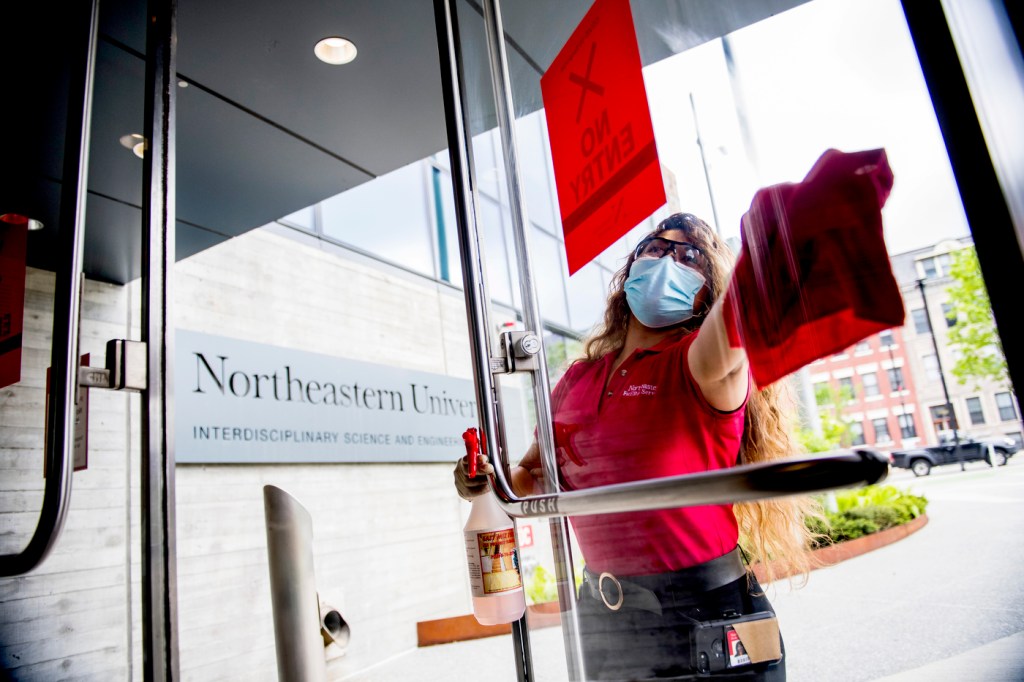
Workers clad in masks and gloves are scrubbing tabletops and door handles throughout Northeastern’s labs. Others are disinfecting bathrooms, handrails, and elevator buttons with state-of-the-art electrostatic hand sprayers that disinfect with 360 degrees of coverage as they make their way through workspaces and residence halls. As you read this, they are cleaning the Boston campus to enable its phased reopening in accordance with public health guidelines.
As preparations for the return of students ramps up in the coming weeks, Northeastern will be adding to its small army of cleaners. By fall, when students, faculty, and staff are back on campus, 250 workers will be operating around the clock to maintain a safe environment throughout the university’s campus in Boston as well as its neighboring locations in Burlington, Nahant, and Dedham, Massachusetts.
Cleaning crews disinfect commonly touched surfaces four to five times every 24 hours. Their work covers all of the common areas in every building, including restrooms, elevators, entrance door hardware, counters, and handrails. They follow the guidelines of the Centers for Disease Control and Prevention and use disinfectants approved and registered by the Environmental Protection Agency.
Similar protocols are in place throughout Northeastern’s global network of campuses in London, Toronto, Vancouver, Seattle, the Bay Area, and Charlotte, North Carolina. Northeastern has launched a phased re-entry to its research labs and administrative offices in the coming weeks with the intention of reopening classrooms and residence halls to students in September, in compliance with public health and safety guidelines, protocols, and policies.
“Our job is to keep the university community safe and healthy,” says Mark Boulter, Northeastern’s senior director of building services, who has been in charge of cleaning more than eight million square feet of living and working spaces throughout more than 100 buildings in Massachusetts.
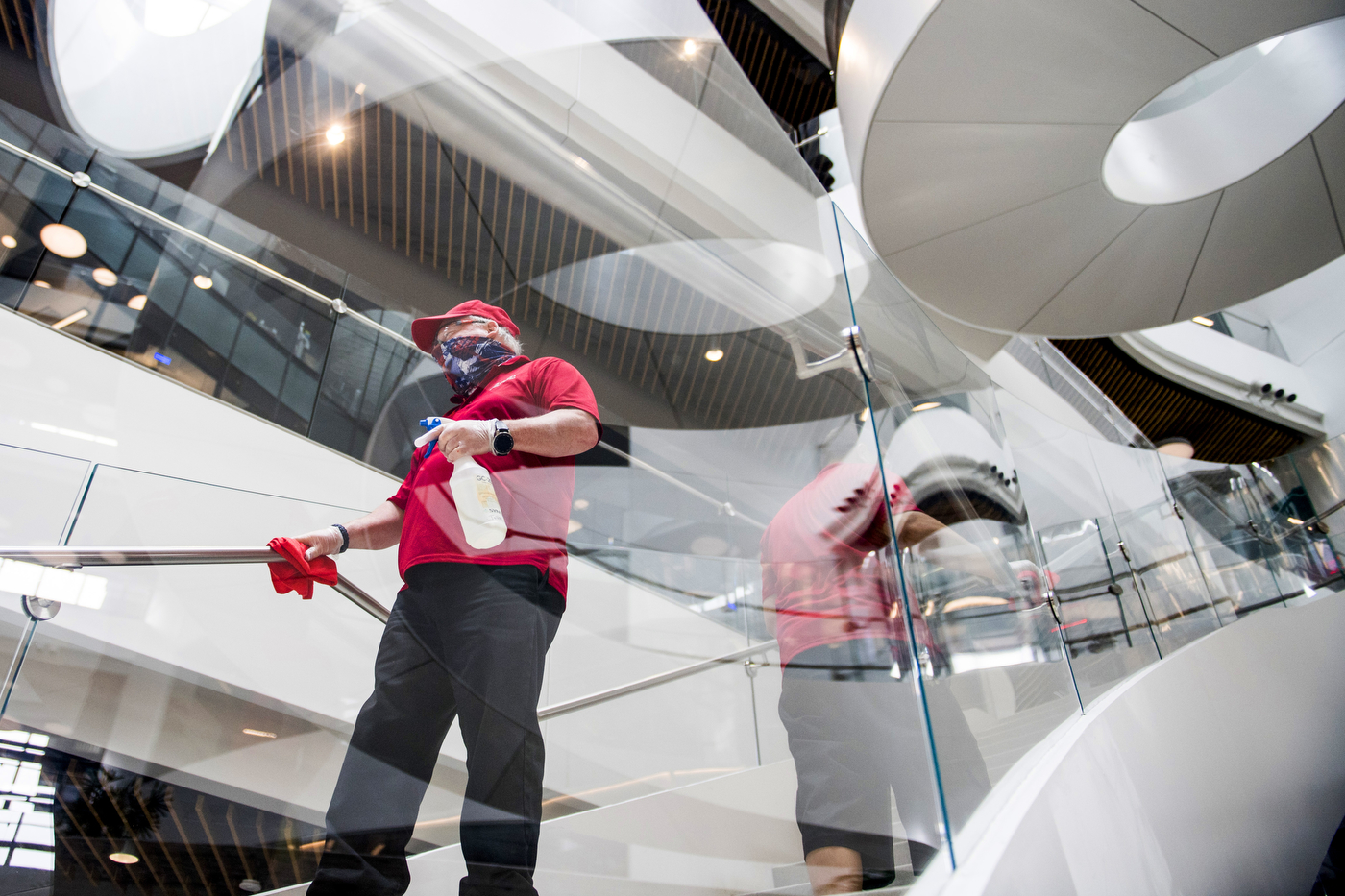
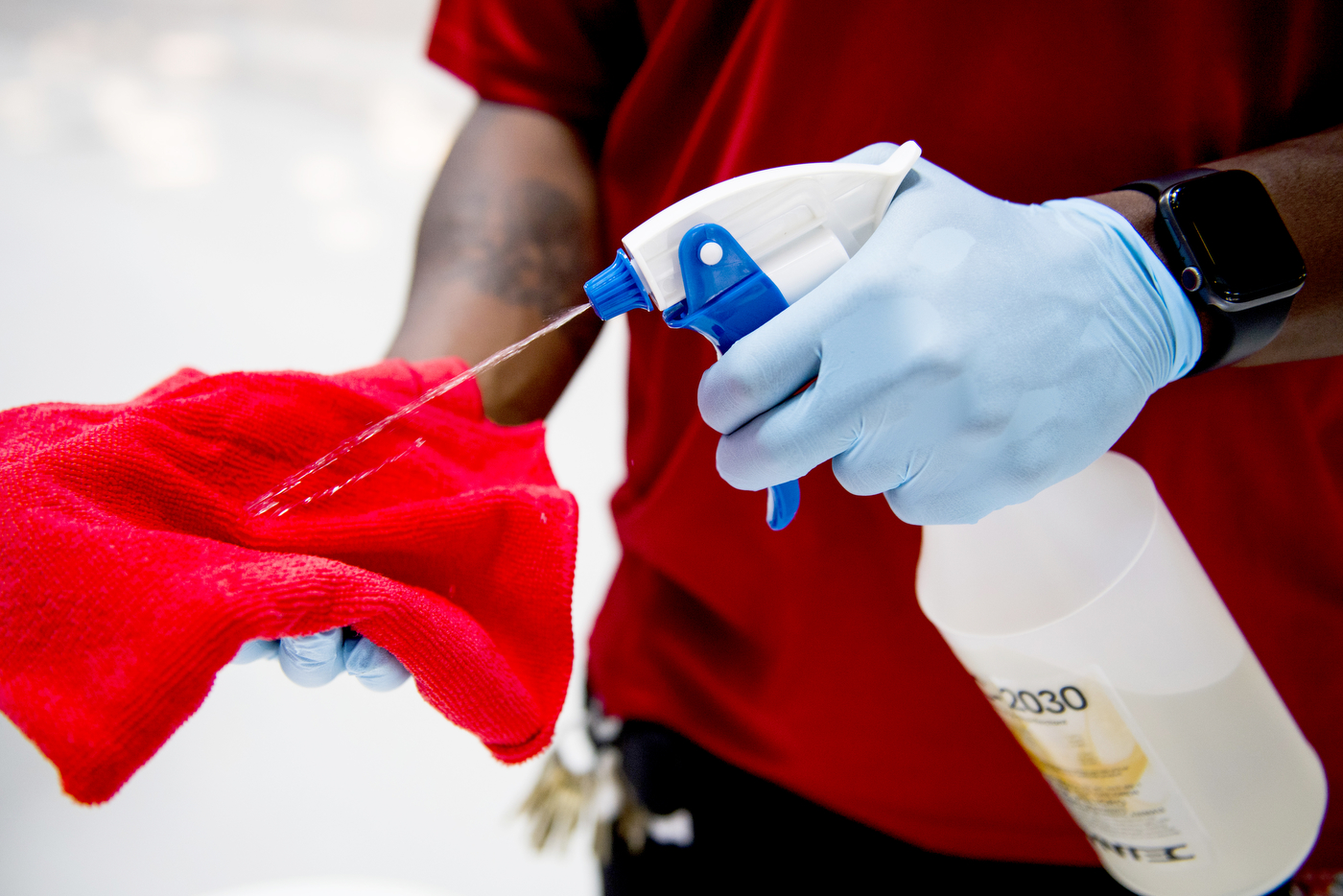
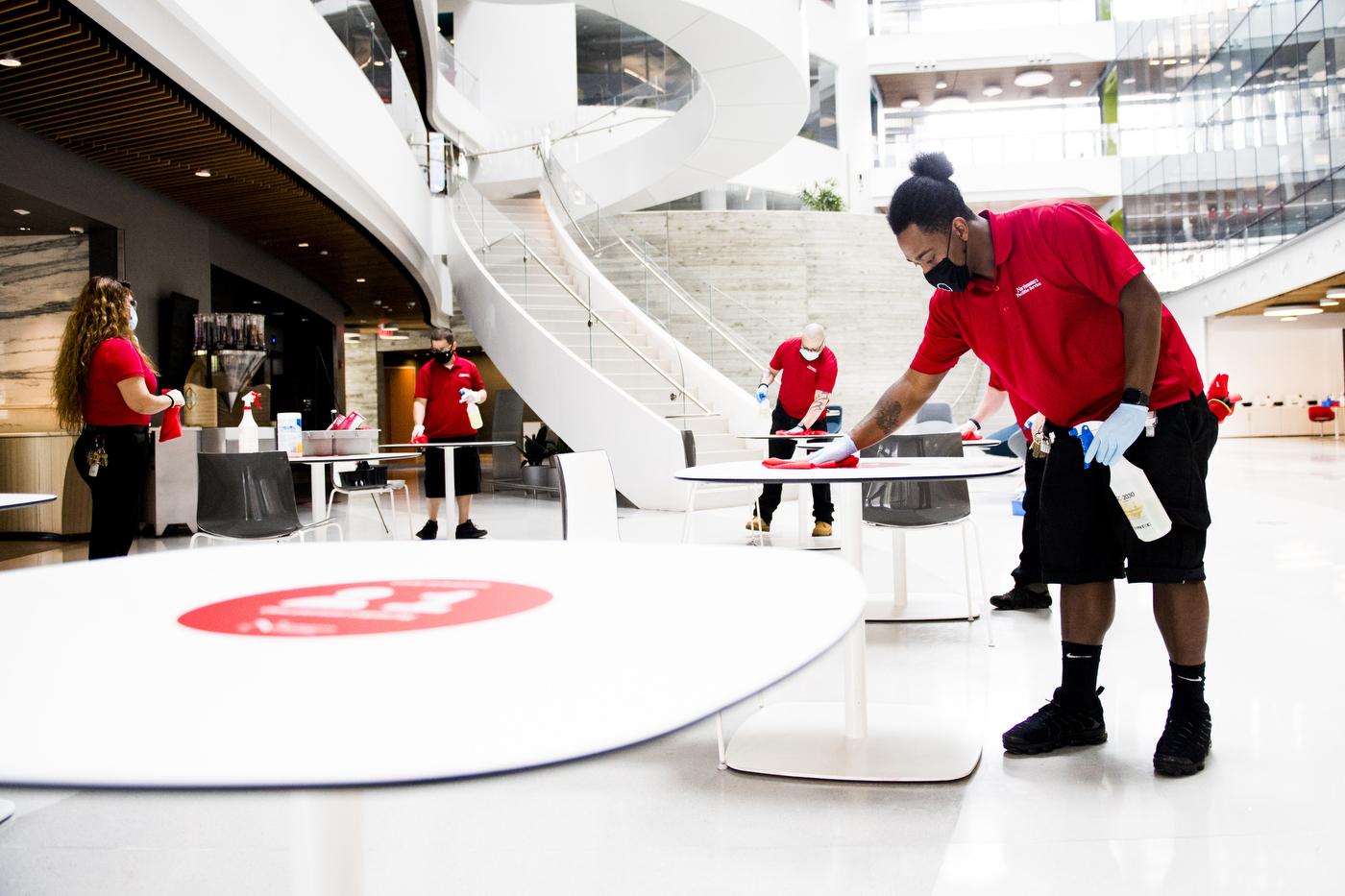
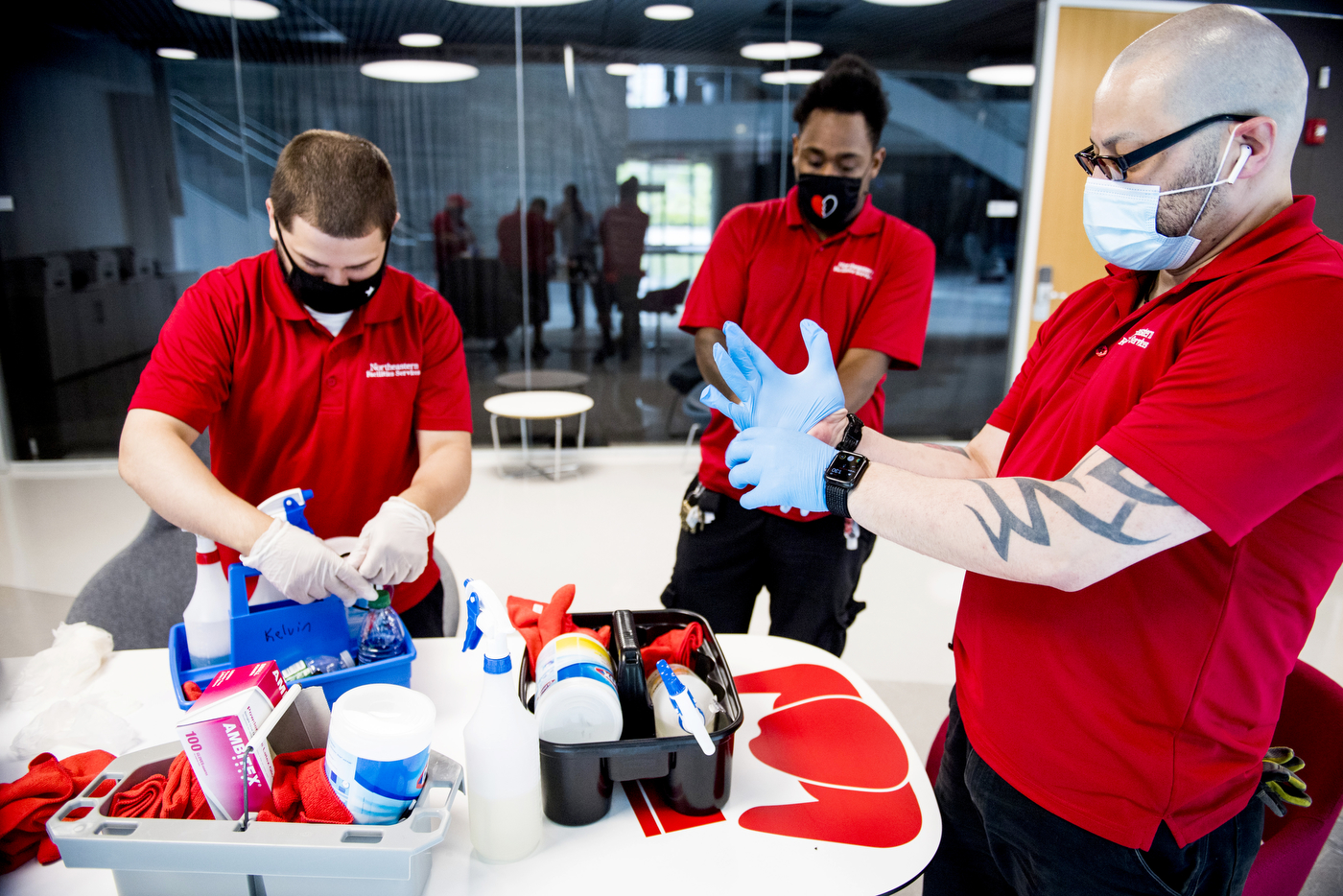
Boulter’s team has been maintaining 28 research-active buildings since March, which has enabled vital research to continue at Northeastern.
His cleaners have also been systematically disinfecting the residence hall at West Village, where 135 Boston first responders—police and emergency medical service providers—have been staying since April, at no cost.
Matthews Arena has hosted three blood drives during the public health crisis because Boulter’s cleaners have created a safe environment for donors as well as Red Cross volunteers and workers.
Five of his workers are able to disinfect the entire Interdisciplinary Science and Engineering Complex in a span of two and a half hours, Boulter says. They will be doing this multiple times a day.
Northeastern facility workers who used to be responsible for setting up more than 25,000 on-campus events per year have been reassigned to keep the campus safe and habitable, says Boulter.
“The appreciation level for what they do has gone up exponentially,” he says.
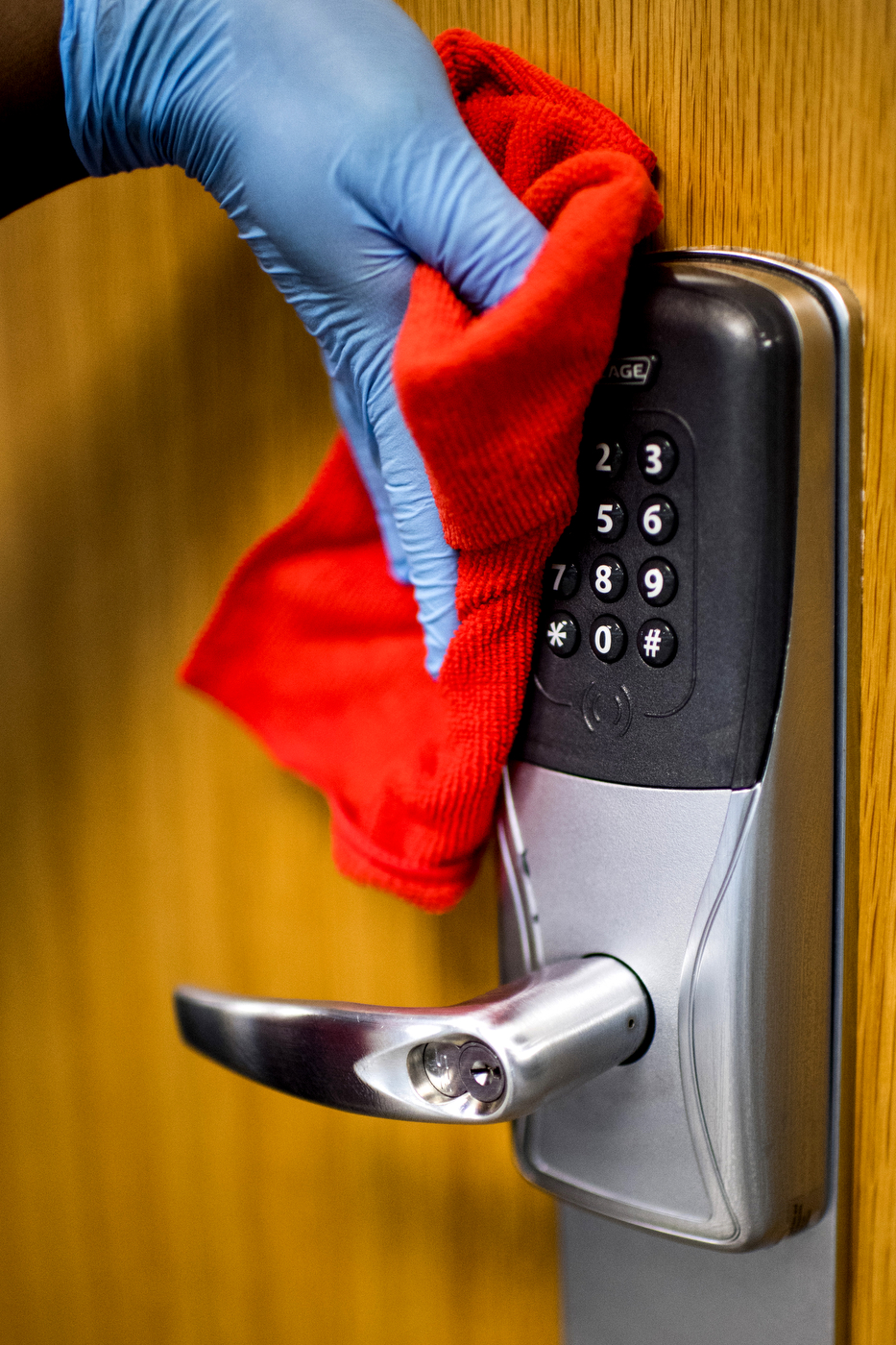
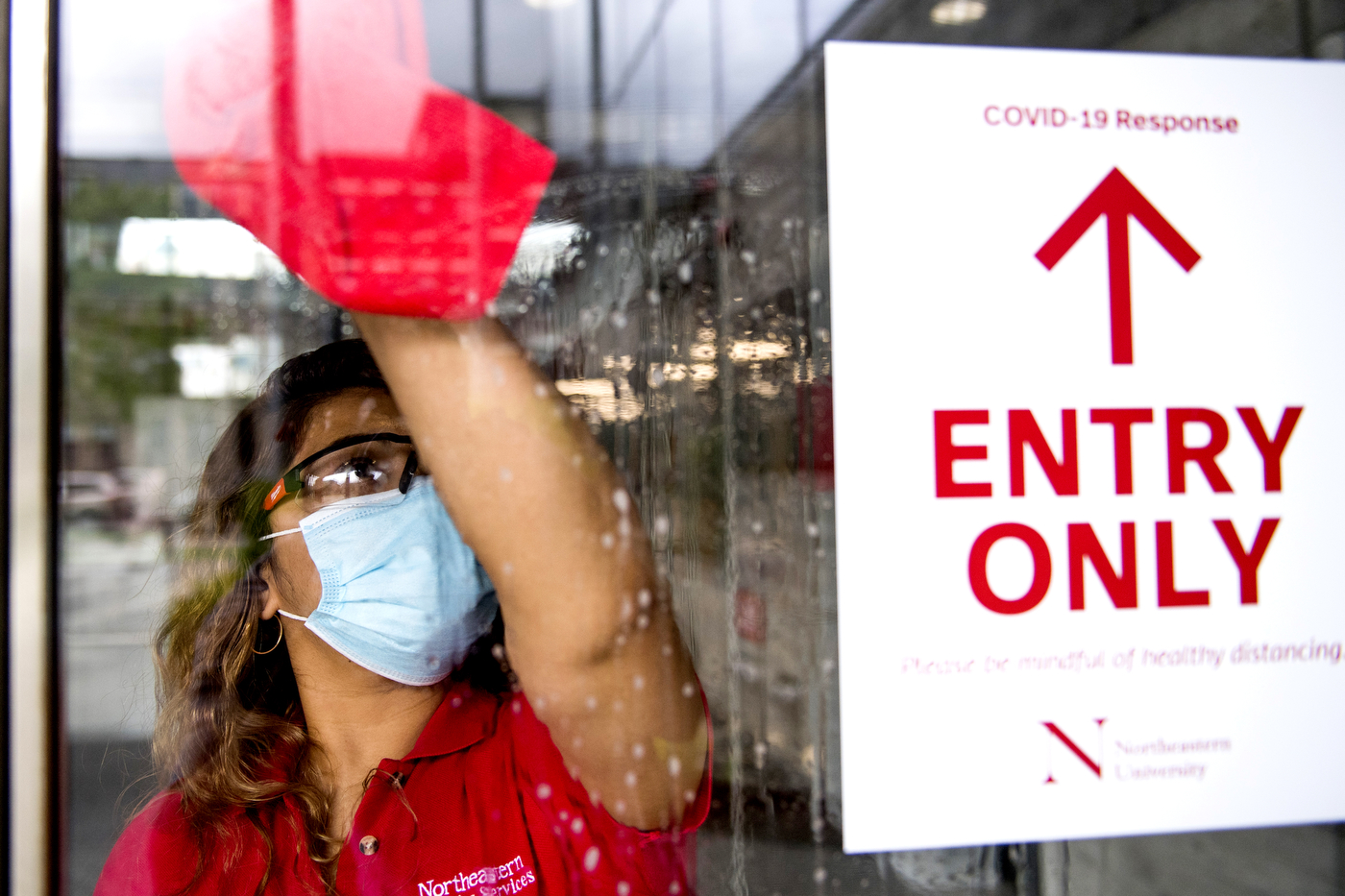
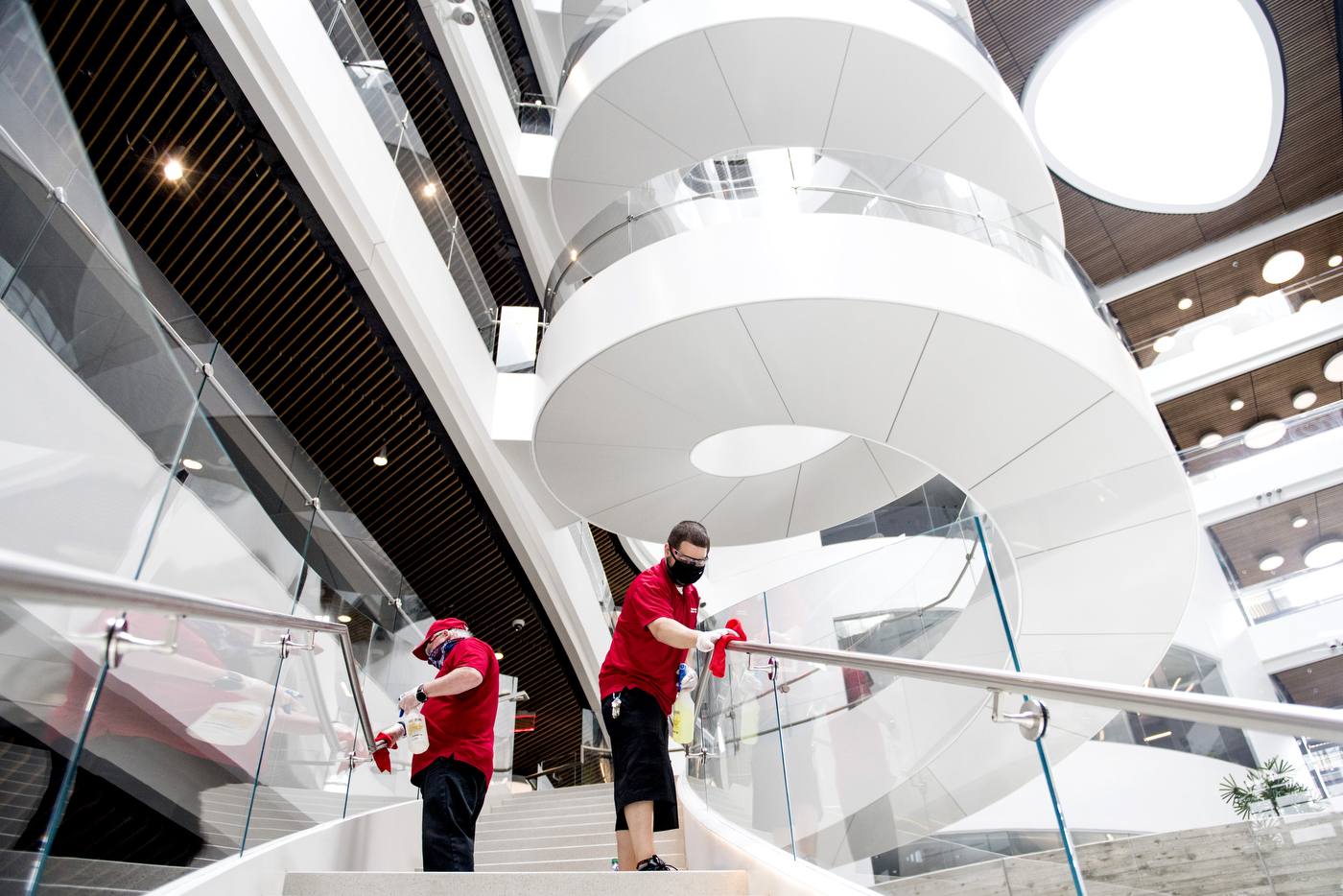
Last winter, in response to requests that predated the outbreak, Boulter arranged for the installation of 800 hands-free soap and paper-towel dispensers.
In March, when COVID-19 advanced from an overseas threat to an immediate public health crisis that forced the withdrawal of students from campus, Boulter triaged the university’s response by focusing on the residence halls and research labs.
“We had 9,600 students leave in four days, including 1,700 students who left all of their belongings behind to be packed,” Boulter says.
His staff spent two months emptying and disinfecting the student residences.
“We had to get all of the residence halls cleaned—including the refrigerators and stoves—to head-off pest issues,” Boulter says. “We also had to pack up all of the students’ belongings and put them into storage.”
The student halls were sanitized by day, and the academic buildings that were kept open for research were being cleansed by night.
In the early days of the public health crisis, Boulter purchased five electrostatic handheld sprayers that have enabled his team to systematically work through the campuses.
“I’m so glad we have them—we wouldn’t be able to get any more of them now until September,” Boulter says. “They’ve proved invaluable because they create a disinfectant spray that doesn’t have to be wiped on the surface.”
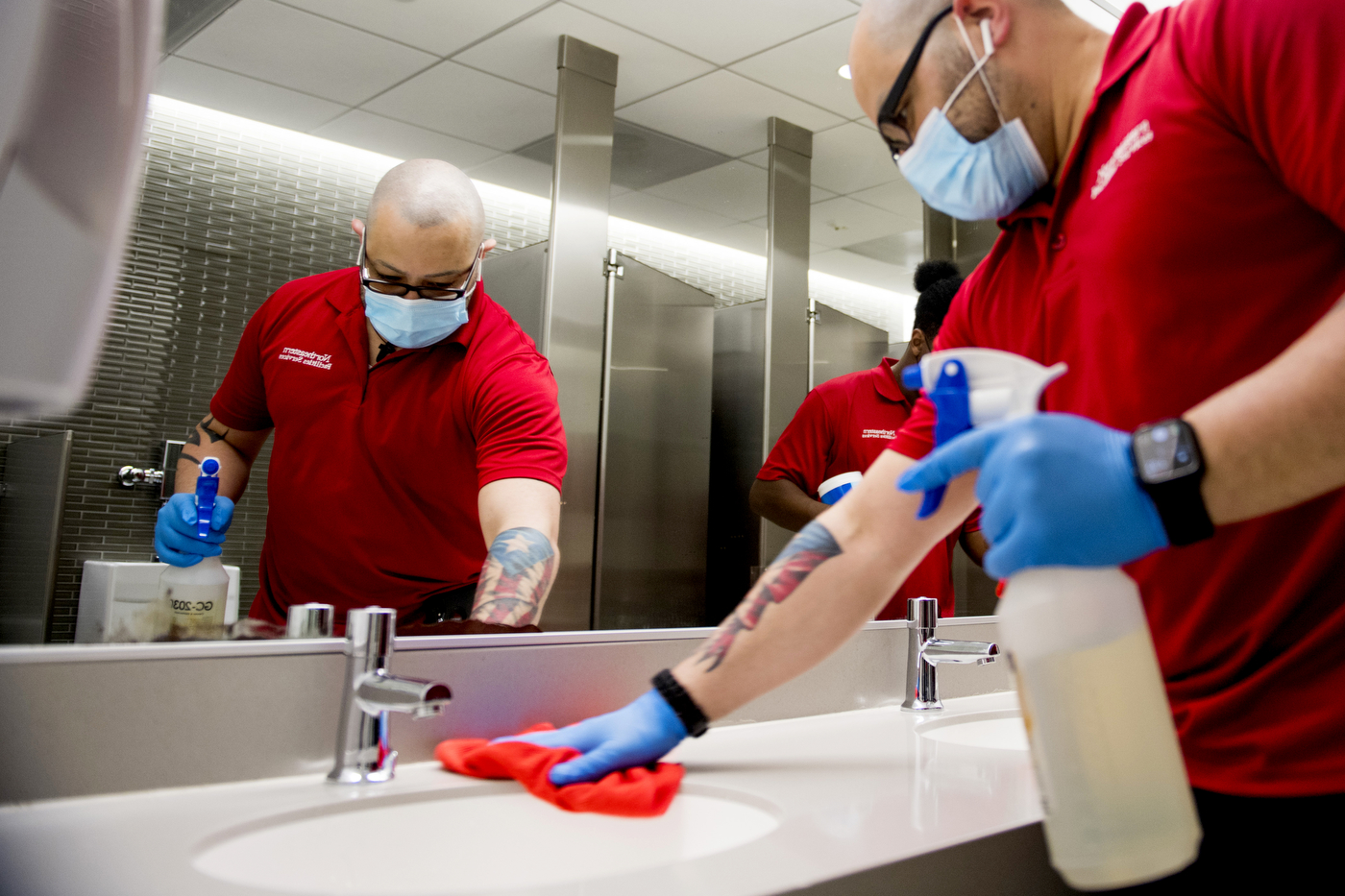
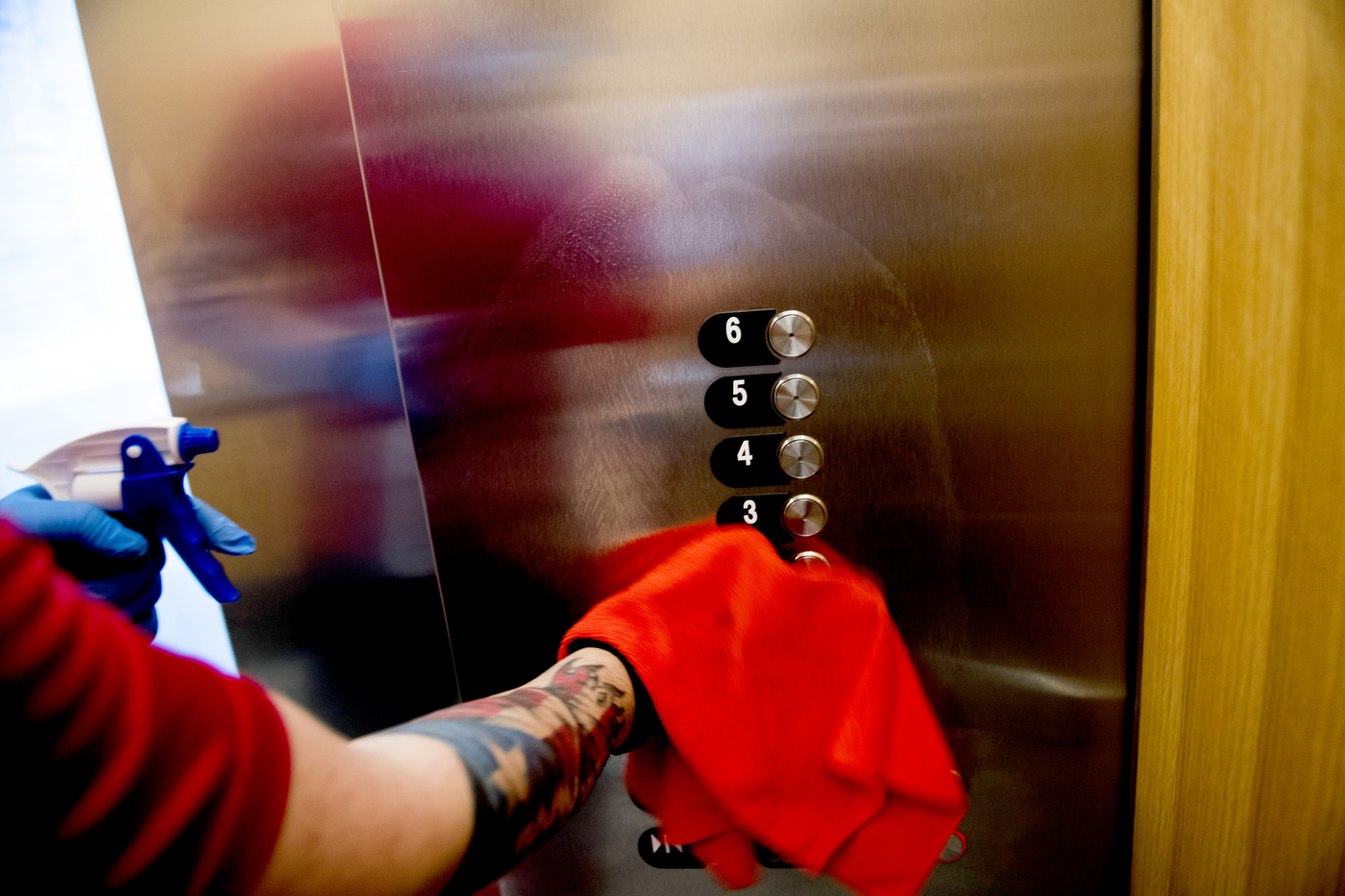
Boulter, a Northeastern graduate, has been in his current role for 23 years in consultation with associate vice president of facilities Jack Malone. Hands-on experiences with snowstorms and other emergency events have guided Boulter’s responses to the shutdown of the campus in March and its phased reopening throughout the summer.
Keeping the university safe depends on the welfare of his cleaning crews, he says.
“It starts with maintaining the safety and health of my staff, which includes making sure that everyone is mentally in a good place,” Boulter says. “I couldn’t be any more proud to be part of this team. These folks have left the safety of their homes to look after the university community as well as each other. My pride is overwhelming for the work that they’ve done.”
For media inquiries, please contact media@northeastern.edu.





